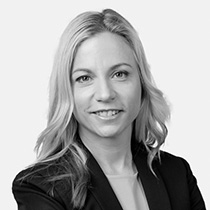GIVEN THE STRONG period for asset class returns, the Equity Fund (our diversified general equity fund) and the Balanced Plus Fund (our flagship multi-asset fund for pre-retirement investors) had a good second quarter in 2020, returning 18.8% and 14.9% respectively. Both funds continue to perform well against their peer groups over all meaningful, longer-term periods.
Market participants remained indifferent to the risks that high and growing levels of government indebtedness present to bondholders. The very low yields offer a poor expected return for the rising risk and we continue to avoid global developed market sovereign bonds. We also remain concerned about the ability of lower income emerging markets to withstand the economic shock, given their limited ability to provide financial support to businesses and households.
Having increased our exposure to global equities to an overweight position towards the end of the first quarter, the sharp upward moves in markets resulted in us bringing back the position to a more neutral level. Our expectations for a faster economic rebound in more robust developed market economies and the risk diversification benefits for South African investors continue to justify a sizeable holding.
South African bonds continue to offer attractive yields in a low inflation environment. However, the deteriorating fiscal position will require meaning-ful issuance to fund in the coming years and increases the risk of a debt trap. While June’s Supplementary Budget acknowledged the challenge, it will take considerable political will to implement the level of structural reform required. We continue to watch this closely. The Covid-19- related demand shock provided the opportunity to add well-priced protection (in the form of inflation-linked bonds) against the longer-term risks of a rise in inflation.
PORTFOLIO ACTIVITY
The portfolios remain skewed to rand-hedge stocks, which are attractive for stock-specific reasons and should also benefit from exposure to economies that are expected to rebound more rapidly. Early in the quarter, we added meaningfully to positions in Bidcorp (+33.3%) and Anheuser-Busch InBev (+9.1%), as both had sold off significantly. Buying was largely funded by a reduction in the size of Naspers and British American Tobacco holdings, both of which have performed well and remain considerable holdings in the funds.
Bidcorp is a well-run food services business with a long-term growth opportunity. It has grown through international expansion, but also in-country by expanding product ranges and getting closer to customers. Its investments in local distribution centres and focus on small, profitable customers enable it to distinguish itself with high levels of service. While the Covid-19 pandemic has restricted out-of-home food consumption, we believe long-term demand remains intact. This was evident in the rapid resumption that Bidcorp has witnessed in its Chinese operations. Bidcorp is expected to continue its growth trajectory and trades on 15 times earnings three years out.
In the case of Anheuser-Busch InBev, poor results, growing concerns over Covid-19-related weaker beer consumption and high debt levels saw the share sell off markedly towards the end of the first quarter. We were able to acquire shares at a price of less than 10 times our assessment of normal earnings. Subsequent clearance by Australia’s competition authority to dispose of an Australian subsidiary will assist in the de-gearing process. The stock is attractively priced for a global staples business benefiting from the compelling economics of the brewing industry.
LOCAL EQUITY EXPOSURE
Domestic equity holdings remain concentrated in the higher quality South African shares, such as the food retailers (Shoprite and Spar), whose more resilient business models are best placed to weather the very tough local macroeconomic environment. Having held up well during the first quarter’s sell-off, many of these underperformed during the second quarter, with the food and drug retail sector declining 2.0%. We acknowledge that many of the more cyclical domestic businesses look cheap, but are concerned that the long-term headwinds they face are considerable and threatening. Weak revenue prospects due to an already weak economy are now expected to be compounded by rising retrenchments, which will ultimately feed through to consumer demand. An underweight position in domestic shares continued to benefit the funds.
The strong rebound in resources benefited the funds’ sizeable positions in Anglo American (+31.9%) and the platinum shares. Platinum miners rose as concerns over weak automotive demand subsided and major markets reaffirmed their commitment to a reduction in emissions. The funds remain invested in Impala Platinum (+53.2%) and Northam Platinum (+67.4%).
While Balanced Plus has direct exposure to gold, we do not hold a position in the locally listed producers, whose capital intensity and high-cost mines have resulted in lacklustre returns to shareholders over time.
OFFSHORE MOVES
In the Equity Fund, we exited one of our larger positions, 58.com, after a take-private offer became definitive. Although the price offered to minority shareholders is below our assessment of fair value, the deal is likely to go ahead. As a result, we redeployed the proceeds into some of our other high-conviction ideas. Airbus was a case in point. The share sold off over investor fears of reduced demand for air travel and an orderbook overhang. While the Covid-19 pandemic has created large amounts of uncertainty, we do not believe this will result in a permanent impairment to the business’s long-term value. Airbus is a high-quality business operating in a global duopoly. We believe it will still benefit from growth over a long time horizon. As long-term investors, this is the kind of opportunity that we can take advantage of.
TO CONCLUDE
The market correction began at a point when investors were still being bombarded daily with negative newsflow about the extent of the pandemic’s economic shockwave. The massive sell-off created a value opportunity. We retain our commitment to look through the short-term noise and use valuation as our anchor point when investing, selecting assets where we believe the market is mispricing the long-term fundamentals.+
Coronation Balanced Plus Fund: Highest annual return 49.3% Aug 2004 - Jul 2005; Lowest annual return (17.4%) Sep 1997 - Aug 1998
Coronation Equity Fund: Highest annual return 62.5% Aug 2004 - Jul 2005; Lowest annual return (28.7%) Mar 2008 - Feb 2009
 South Africa - Personal
South Africa - Personal




